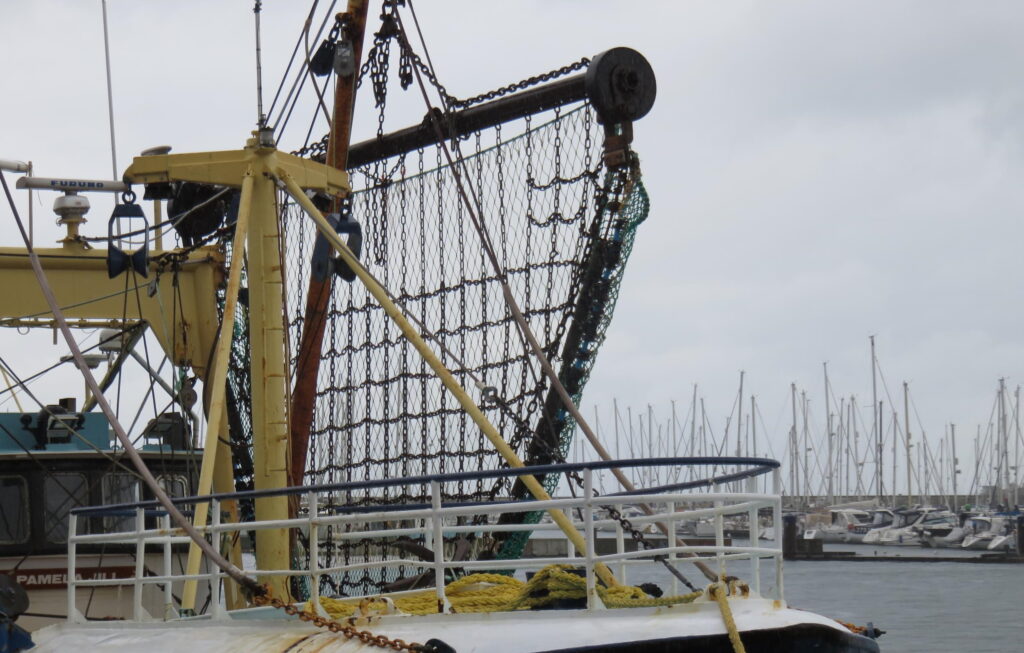

Fisheries Innovation and Sustainability, a coalition of experts working to drive strategic innovation for a prosperous UK fishing industry, funded by the FCFCT’s Good Practice in UK Fishing programme, are developing new technology which could significantly reduce the amount of bycatch (the unintentional capture of non-targeted species) in fishing vessels.

Smartrawl – an underwater robotic sorting device which helps fishing trawlers prevent bycatch by identifying and sizing fish and other marine life in real-time – is being developed by researchers from Heriot-Watt University in partnership with FIS, and funded by the UK Seafood Innovation Fund.
The technology has now been covered on STV, you can watch the footage here.
Smartrawl uses AI-technology to determine the individual size and species of marine life captured inside a trawl net using images taken by an underwater stereo camera. It then releases or retains each marine animal depending on whether it qualifies against a trawler’s intended catch using a computer-controlled robotic gate.
Trawling is a fishing practice that herds and captures target species, like fish or prawns, by towing a net along the ocean floor. This method of fishing is known to cause discarding and bycatch, where fish or other marine animals are accidentally caught and returned to the sea, most often dead. According to global marine fisheries data, it is estimated that 46% of all marine fish that are discarded come from this method of fishing.
Developed by researchers from the Lyell Centre and the National Robotarium at Heriot-Watt University, the sorting device has been designed in collaboration with the UK fishing industry. An industry steering group composed of commercial skippers, fisheries scientists and seafood experts have fed into the unique project since 2017, led by FIS. The Smartrawl device is able to fit into existing nets of all sizes of vessels and requires no additional cables due to the device’s patented gate system which works with the force of the water to rotate between open and closed states.
Using the system, fishers will be able to programme trawls to catch specific marine animals according to their size and species, market conditions and allotted quotas, resulting in no discards or bycatch.
Components of the project have already been tested at sea, and further trials are scheduled for later this year [2023] in Shetland using the research vessel Atlantia, operated by the University of the Highlands and Islands.
Paul Fernandes, the inventor of Smartrawl, is scientific lead for the project. He is a professor of fisheries science and technology at the Lyell Centre and Heriot-Watt Bicentennial Research Leader. He said:
“More than 4 million tonnes of marine fish are unintentionally caught by trawlers around the world every year, as well as bycatch of sharks, rays, dolphins, critically endangered turtles and seabirds. The sad reality is that these creatures, more often than not, are returned to the sea dead or dying.
“Current methods used on trawlers are unable to distinguish between different species and animals or give skippers enough information to build an accurate understanding of the size of individual fish prior to capture.
“Smartrawl has been developed to ensure that vessels only catch the fish they’re targeting, releasing other animals back into their natural environment quickly and without harm. As a result, we’re confident that discarding and bycatch could quickly become a thing of the past and our precious marine life preserved.”
David Richardson, chief entrepreneurial executive at Heriot-Watt University, said:
“Smartrawl presents a significant step towards benefiting the marine environment whilst protecting the business reputation of seafood producers and contributing to the UK economy. Significantly, it has the potential to revolutionise fisheries around the world by supporting them to be more commercially viable and sustainable.
“Across Heriot-Watt’s breadth of research facilities, institutions and campuses, we’re delivering real-world impact everyday, developing ground-breaking research into commercial applications and pioneering solutions to some of our planet’s most pressing challenges.”
FIS Executive Director, Kara Brydson, noted:
“The UK Seafood Innovation Fund supports bold and ambitious tech-driven projects that will enable a step-change in the productivity and sustainability of the UK seafood sector. That perfectly describes Smartrawl, and this grant will take us nearer to our goal of enabling UK fishers to select and retain their high-quality catch while releasing non-target species back into our seas.”